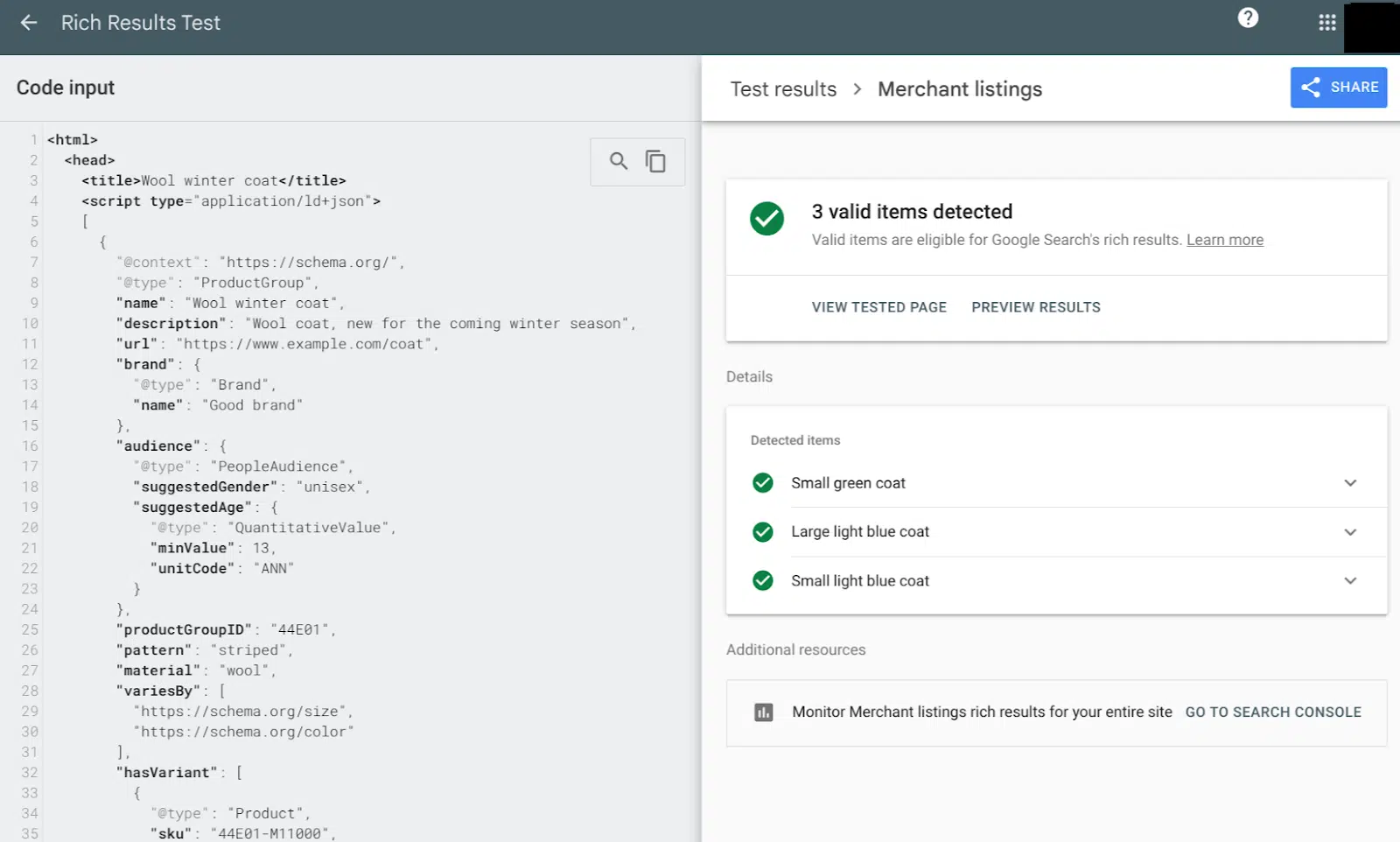Google adds support for product variants and clarifies return fees
The new product variants has three new properties; hasVariant, variesBy and productGroupID.
Google added new structured data to support product variants on e-commerce stores, this includes new technical documentation on how to implement the new structured data and Search Console and rich result testing tools for validation of the new markup. This is called product variant structured data.
Also, Google clarified when to use FreeReturn versus ReturnShippingFees as value for returnFees for product returns in the product structured data documentation.
Product variant details. Google explained that e-commerce sites “for variant products are more complex than single-product sites, and, consequently, the associated structured data is more complex as well. One added complexity is that variants must be grouped together under one “parent” product.” Google’s solution to allow such grouping of variants is by adding new support for the Schema.org ProductGroup type and three new properties:
hasVariant(to nestProductvariants under their parentProductGroup),variesBy(to list the variant-identifying properties), andproductGroupID(the ID, also known as “parent sku” of theProductGroup).
Also added a new isVariantOf property to the product structured data documentation and clarified that Google support product variants with distinct URLs.
Validation support. In addition to the new documentation, Google updated Search Console to support validation and error handling for this new structured data. Google said, “New validations for variants have been added to the Product snippets and Merchant listings reports in Search Console and Rich Results Test.”
Here is what that report looks like:

Return clarifications. As a side note, Google Clarified when to use FreeReturn versus ReturnShippingFees as value for returnFees for product returns in the product structured data documentation.
Why we care. If you run an e-commerce site and you have products that have product variants, such as by sizes, colors, materials, or patterns or different memory sizes, screen sizes, and processors, etc – then you will want to check out this new product variant structured data support.
Utilize the documentation and the testing tools and track any success in search with these implementations.
Related stories
New on Search Engine Land